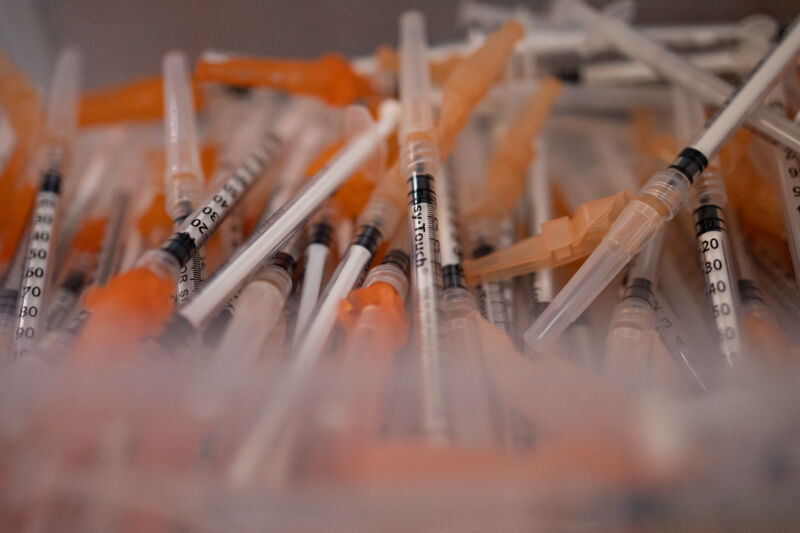
Gamal Abdelaziz was accused of paying $300,000 in 2018 to have his daughter admitted to the University of Southern California as a top-ranked basketball recruit,
Wiley's Jay Flynn discusses the impact that paper mills had on Hindawi's publishing program and how all stakeholders must collaborate to address behaviors that undermine research integrity.
The post Guest Post — Addressing Paper Mills and a Way Forward for Journal Security appeared first on The Scholarly Kitchen.
Christos Petrou takes a look at the Guest Editor model for publishing and its recent impact on Hindawi and MDPI, as Clarivate has delisted some of their journals.
The post Guest Post – Of Special Issues and Journal Purges appeared first on The Scholarly Kitchen.

AI models designed to closely simulate a person’s voice are making it easier for bad actors to mimic loved ones and scam vulnerable people out of thousands of dollars, The Washington Post reported.
Quickly evolving in sophistication, some AI voice-generating software requires just a few sentences of audio to convincingly produce speech that conveys the sound and emotional tone of a speaker’s voice, while other options need as little as three seconds. For those targeted—which is often the elderly, the Post reported—it can be increasingly difficult to detect when a voice is inauthentic, even when the emergency circumstances described by scammers seem implausible.
Tech advancements seemingly make it easier to prey on people’s worst fears and spook victims who told the Post they felt “visceral horror” hearing what sounded like direct pleas from friends or family members in dire need of help. One couple sent $15,000 through a bitcoin terminal to a scammer after believing they had spoken to their son. The AI-generated voice told them that he needed legal fees after being involved in a car accident that killed a US diplomat.

A new method uses nuclear magnetic resonance (NMR) spectroscopy to detect food adulteration, specifically whether fillers like vegetable oil have been added to food products.
The scientists were motivated by a need to help regulatory agencies like the US Food and Drug Administration (FDA) with detection of adulterated food products that are products in which certain ingredients are missing or replaced.
“Food adulteration leads to a product that is cheaper to produce but is sold as the original product,” says scientist Colleen Ray of the University of Missouri department of chemistry. “This results in consumers buying a product that is not what they expected and is often inferior to the unadulterated version. Therefore, we wanted to explore the authenticity of these products.”
Ray compares the use of NMR spectroscopy with MRI.
“When medical professionals use an MRI to gauge the severity of a torn ligament or to follow a cancerous tumor, they are just using NMR spectroscopy,” she says. “The main difference is that they create pictures from the data, and we use the data to figure out the structure of molecules.”
NMR spectroscopy uses a magnet and radio waves to determine the content and purity of different substances and has been used before with other food products like honey, olive oil, and wine, says C. Michael Greenlief, director of the University of Missouri Proteomics Center and Nuclear Magnetic Resonance Facility and corresponding author of the study.
“The analysis of food products with NMR spectroscopy is a powerful tool for the detection of adulteration,” says Greenlief, a professor of chemistry. “It is ideal for analyses of this type due to a high sample throughout, the ability to discriminate based on structural differences of metabolites with similar masses, and the ability to examine samples in either their native state or with little sample preparation.”
In the study, the scientists created and tested a method to identify vegetable oil adulterants in hard cheese products. They discovered 29% of 52 samples of various non-refrigerated grated parmesan cheese were adulterated with palm oil, a type of vegetable oil. They also note the labels of the adulterated samples did not declare palm oil as an ingredient on their labels.
“Genuine cheeses were found to have a very consistent lipid profile from sample to sample, improving the power of this approach to detect vegetable oil adulteration,” Ray says. “Palm oil itself is a clever adulterant owing to its semi-solid state at room temperature, similar color to cheese, and low price compared to cheese. However, this study is strictly limited to the lipid profile of these products, and no attempts were made to quantify any fillers aside from palm oil.”
The FDA characterizes intentional food adulteration done for financial reasons as “economically motivated adulteration” or “food fraud.” A scientist at the FDA has also expressed interest in learning more about the team’s process to help detect adulteration in food products.
The work appears in the journal Molecules. Other coauthors are from the University of Missouri and Sweetwater Science Laboratories.
Source: University of Missouri
The post New method detects food fillers appeared first on Futurity.

Concerns about fraud have prompted the New York City education department, led by chancellor David C. Banks, to stop doing business with 20 private education companies.

Stocks & Securities Limited, a financial firm based in Kingston, Jamaica, had some unfortunate news for one of its clients, Usain Bolt. The $12.7 million you have in your account with us is missing, and you only have $12,000 remaining, it told the world record-holding sprinter. — Read the rest

Enlarge / A container of syringes used to administer COVID-19 vaccine. (credit: Getty | Hannah Beier/Bloomberg )
A Utah plastic surgeon and three of his associates are facing federal charges for a year-long scheme in which they allegedly squirted around 2,000 vaccine doses down the drain, sold falsified vaccination cards for $50 each, and tricked kids into thinking they were vaccinated against COVID-19 by injecting them with saline, collectively, 391 times.
Federal prosecutors last week indicted Dr. Michael Kirk Moore Jr., who owns and operates Plastic Surgery Institute of Utah in Midvale, south of Salt Lake City, as well as the business' office manager, Kari Dee Burgoyne, its receptionist, Sandra Flores, and a neighbor of Moore's, Kristin Jackson Andersen. All four are charged with conspiracy to defraud the federal government, along with two counts related to improper disposal of government property.
According to the indictment, which was unsealed on January 17, Moore, Burgoyne, Flores, and Andersen set up a scheme in which the plastic surgery practice became a legitimate COVID-19 vaccine provider. Moore signed the government's COVID-19 Vaccination Program Provider Agreement in May 2021, allowing the site to receive bona fide, government-purchased COVID-19 doses. Between October 15, 2021, and September 6, 2022, the group ordered around 2,200 vaccine doses from the federal government.